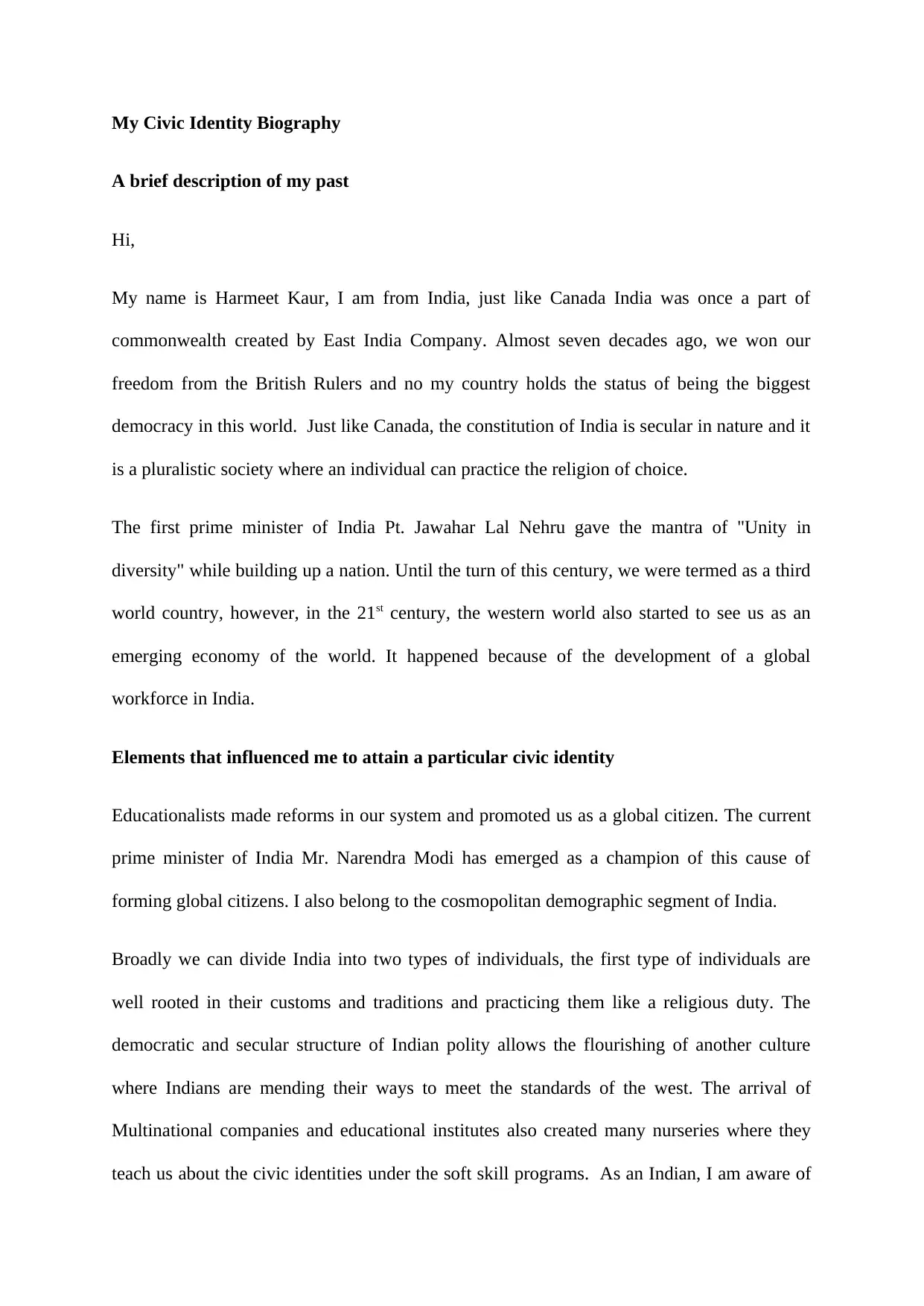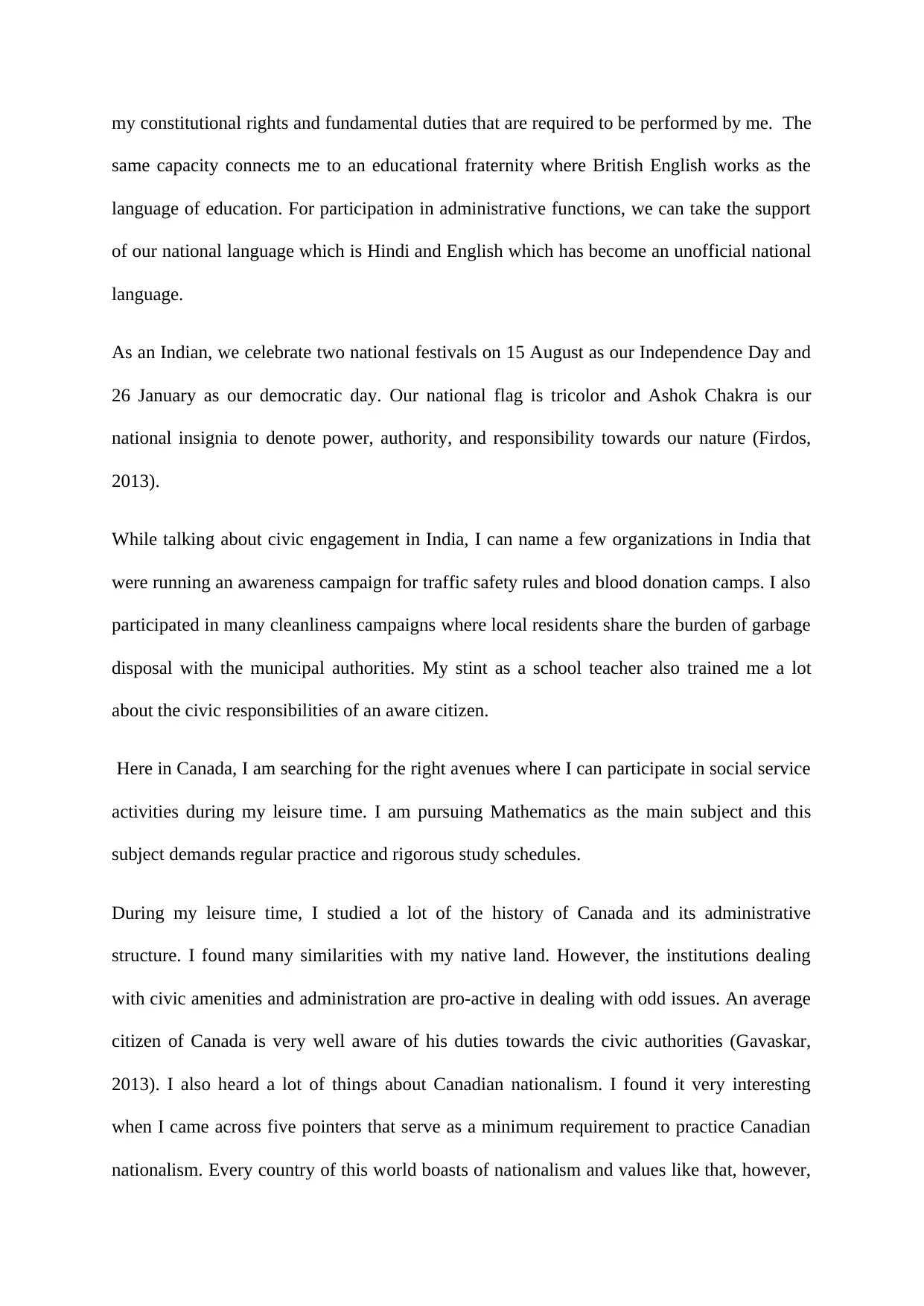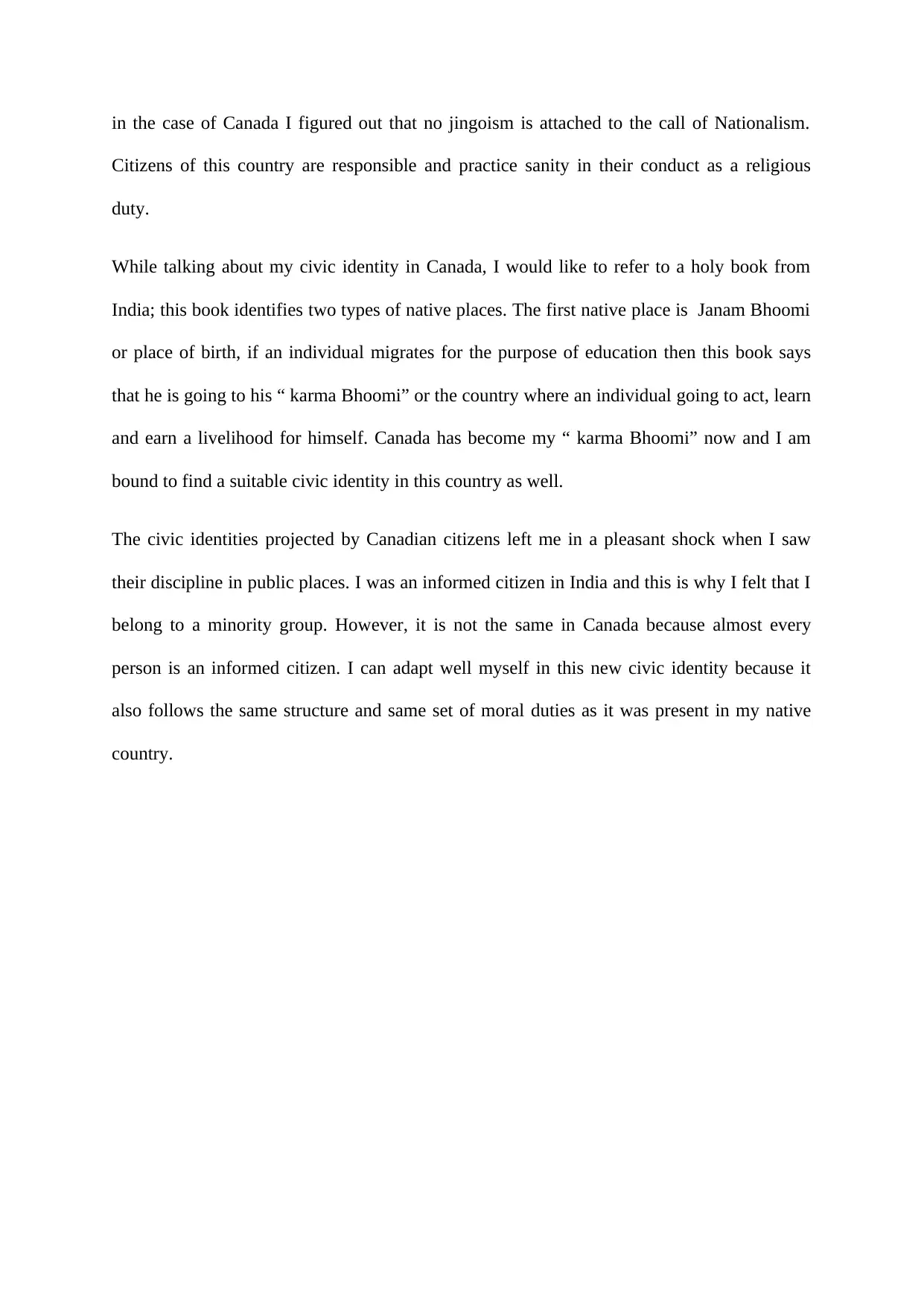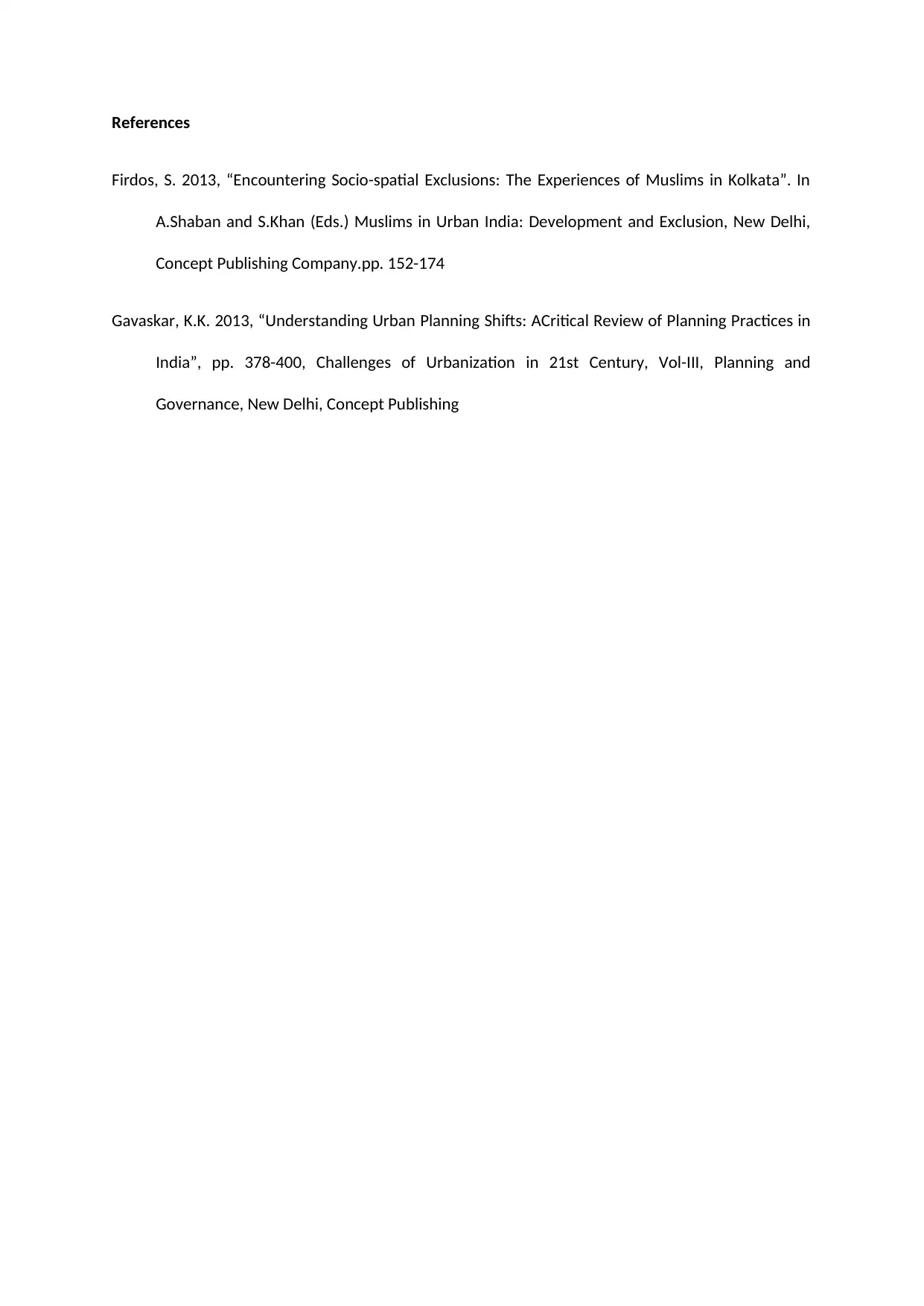Civic Identity Biography: A Comparative Study of India and Canada
VerifiedAdded on 2022/11/23
|5
|996
|378
Essay
AI Summary
This essay presents a personal biography exploring the author's civic identity, shaped by experiences in India and Canada. The author, originally from India, discusses the influence of Indian culture, traditions, and constitutional values on their understanding of civic responsibility. They highlight the concept of 'Unity in Diversity' and the emergence of India as a global workforce. The essay then transitions to the author's experiences in Canada, focusing on Canadian nationalism, civic engagement, and the adaptation to a new cultural environment. The author reflects on the differences and similarities between the two countries, ultimately defining Canada as their 'karma Bhoomi,' a place of action, learning, and livelihood. The essay concludes by emphasizing the author's commitment to finding a suitable civic identity in Canada while retaining the moral duties instilled in their native country. Desklib offers a platform for students to access similar essays and solved assignments.
1 out of 5












![[object Object]](/_next/static/media/star-bottom.7253800d.svg)